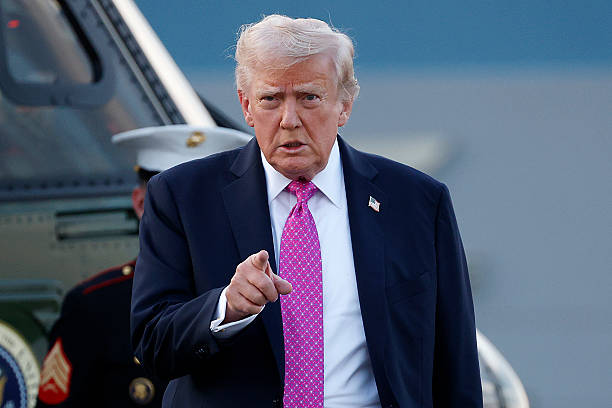Washington, D.C.: Tensions between the White House and the D.C. government flared again this week after President Donald Trump warned he would declare a national emergency and federalize Washington, D.C. if local police refuse to work with federal immigration authorities.
The conflict stems from Mayor Muriel Bowser’s reported decision not to have the city’s police cooperate with Immigration and Customs Enforcement (ICE) when it comes to sharing information about undocumented individuals.
Trump’s Hardline Warning
On Truth Social, Trump praised his earlier decision to deploy thousands of National Guard troops to the capital in August, claiming crime had nearly disappeared since then.
“In just a few weeks, the place is absolutely booming… for the first time in decades, virtually NO CRIME,” Trump wrote.
He went on to promise residents and business owners that he would not allow crime to rise again:
“To the people and businesses of Washington, D.C., DON’T WORRY, I AM WITH YOU, AND WON’T ALLOW THIS TO HAPPEN. I’ll call a National Emergency, and Federalize, if necessary!!!”
Trump also blamed what he called “Radical Left Democrats” for pressuring Bowser’s office to push back against ICE, warning that refusing to cooperate with federal immigration enforcement would cause crime to “come roaring back.”

Federal Control Already in Place
This isn’t the first time Trump has asserted authority over the city. In August, he put the Metropolitan Police Department under direct federal control and sent in federal law enforcement agencies — including ICE — to patrol the streets. Thousands of National Guard troops remain stationed in D.C., though the administration has not said when their mission will end.
The D.C. National Guard is unique compared to other states’ units. While state governors control their Guard troops, Washington’s National Guard reports directly to the president.
Bowser’s Position
Mayor Bowser has not publicly responded to Trump’s latest comments. However, she has previously praised the federal surge of law enforcement, noting that the additional manpower brought a noticeable decline in violent crime across the city. At the same time, she recently signed an order directing the city to coordinate more closely with federal agencies, signaling her administration’s complicated balancing act between public safety and local control.
What’s Next?
For now, the situation in D.C. remains uncertain. The Assam State Disaster Management Authority (ASDMA) continues to monitor local conditions closely. [⚠️ Correction: remove—wrong context]
What is clear, however, is that the fight over federal versus local control in the nation’s capital is far from over. With protests still fresh from the August deployment and immigration policy under the spotlight ahead of 2025, Washington, D.C., could once again become a flashpoint in the national debate over law, order, and political power.




